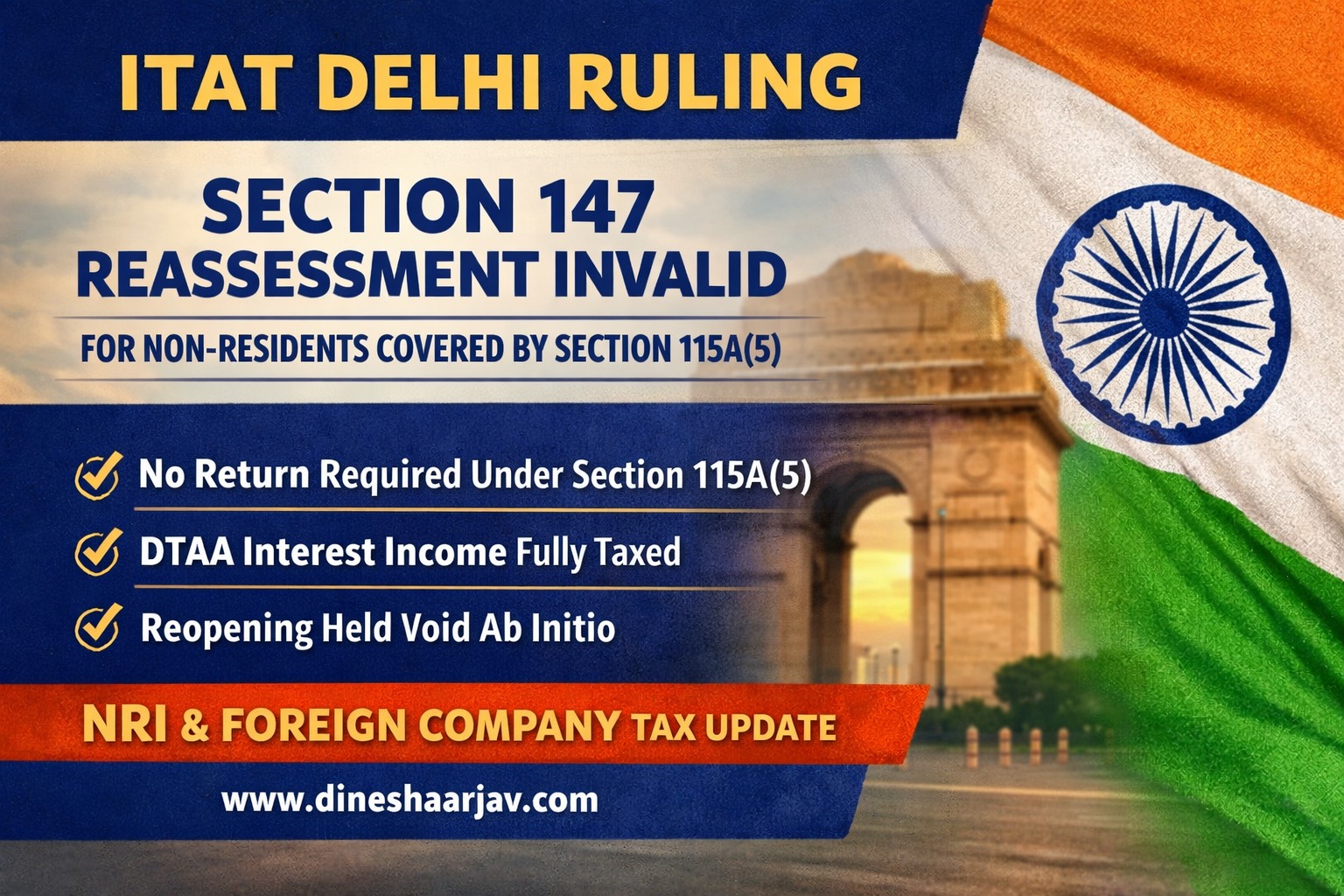 WhatsApp
WhatsApp
 Call Us
Call Us
 Email Us
Email Us
 Whatsapp Community
Whatsapp Community

If you're an NRI planning to sell property in India, a recent ruling by the Income Tax Appellate Tribunal (ITAT), Mumbai could be a big win for your tax planning.
The judgment clarifies that for calculating long-term capital gains (LTCG), you can apply indexation benefits starting from the year of the agreement to sale, even if you received possession years later.
Combined with the latest update in the Finance Bill, 2024, this makes timing your property sale more important than ever.
Let’s break this down.
When you sell real estate in India, the gains are taxed as either short-term or long-term capital gains.
The Finance (No. 2) Bill, 2024 has introduced key changes to Section 112(1)(c) of the Income Tax Act, specifically affecting LTCG for NRIs:
| Date of Property Sale | LTCG Tax Rate | Indexation Benefit |
| Before July 23, 2024 | 20% | Available |
| On or After July 23, 2024 | 12.50% | Not Allowed |
What This Means:
This is where the latest ITAT ruling brings clarity for NRIs.
In a recent ITAT case, the NRI taxpayer:
The Assessing Officer (AO) applied indexation from FY 2010–11, increasing LTCG to ₹17+ lakhs.
But the Tribunal ruled that the taxpayer acquired the rights in the capital asset in FY 2007–08 through the registered agreement and substantial payment. Hence, indexation must begin from that year.
| Particulars | Indexed from FY 2010–11 | Indexed from FY 2007–08 |
| Cost of Acquisition | ₹ 36,77,020 | ₹ 36,77,020 |
| Indexed Cost | ₹ 52,95,736 | ₹ 68,33,518 |
| Sale Price | ₹ 70,00,000 | ₹ 70,00,000 |
| Taxable LTCG | ₹ 17,04,264 | ₹ 1,66,482 |
Taxable capital gains reduced by over ₹15 lakh!
This ruling sets an important precedent. According to Section 48 (Explanation iii) of the Income Tax Act, the "indexed cost of acquisition" is based on when you first held the asset.
The Tribunal confirmed that “holding” starts:
It aligns with earlier judgments like:
Both rulings support that legal rights, not physical possession, determine the start of the holding period for LTCG indexation.
If you're a Non-Resident Indian selling property, here's what you should consider:
Date of Agreement vs. Possession
Use the agreement date for indexation, especially if you’ve made substantial payments early.
Sold Before July 23, 2024?
You can claim 20% LTCG with indexation.
Selling After July 23, 2024?
Expect 12.5% tax without indexation—beneficial only for properties bought recently.
At Dinesh Aarjav & Associates, we help NRIs with end-to-end support in:
This ITAT ruling is a big win for those selling NRI property in India.
It confirms that the indexation benefit for long-term capital gains can start from the agreement date, not possession—if substantial payments were made.
Combine this with the Finance Bill changes: If you're close to selling a property, consider the cut-off date of July 23, 2024, and decide whether indexation or lower tax rate benefits you more.
Talk to our NRI taxation Experts today.
Plan Repatriation Wisely
Use Form 15CA/CB, NRO/NRE accounts, and LRS rules to move funds abroad legally.
Leverage DTAA Relief
Avoid double taxation if you live in the US, UK, Canada, or other treaty countries.






